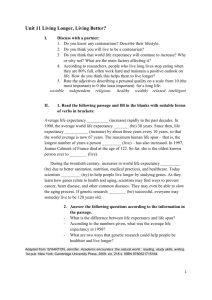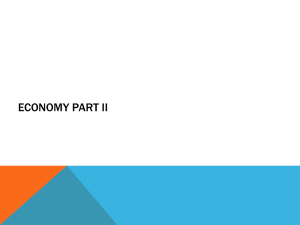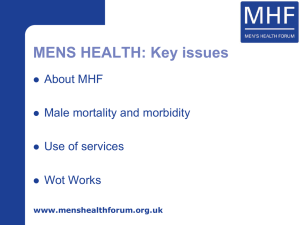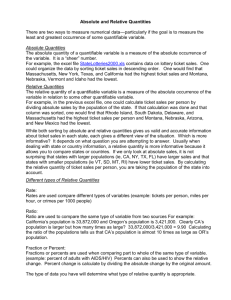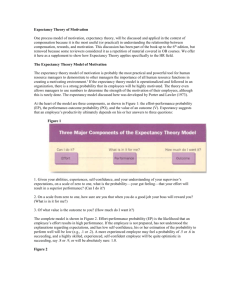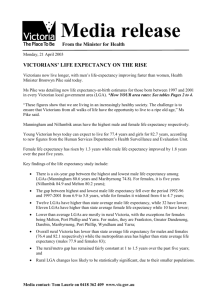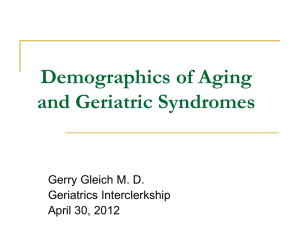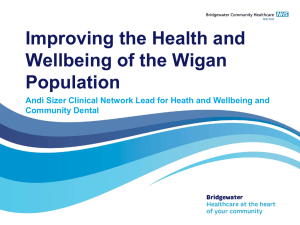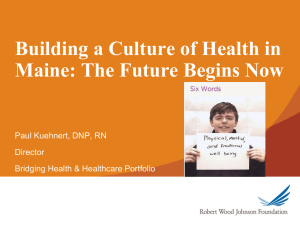v2039_Unit_11_Living_Longer
advertisement
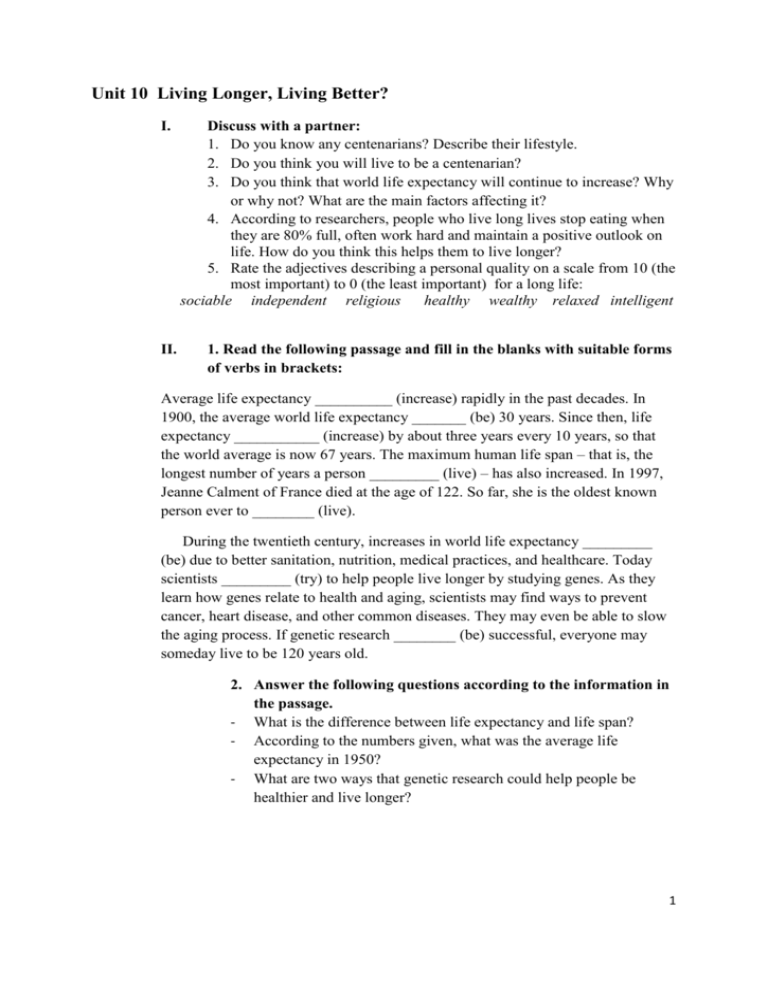
Unit 10 Living Longer, Living Better? I. II. Discuss with a partner: 1. Do you know any centenarians? Describe their lifestyle. 2. Do you think you will live to be a centenarian? 3. Do you think that world life expectancy will continue to increase? Why or why not? What are the main factors affecting it? 4. According to researchers, people who live long lives stop eating when they are 80% full, often work hard and maintain a positive outlook on life. How do you think this helps them to live longer? 5. Rate the adjectives describing a personal quality on a scale from 10 (the most important) to 0 (the least important) for a long life: sociable independent religious healthy wealthy relaxed intelligent 1. Read the following passage and fill in the blanks with suitable forms of verbs in brackets: Average life expectancy __________ (increase) rapidly in the past decades. In 1900, the average world life expectancy _______ (be) 30 years. Since then, life expectancy ___________ (increase) by about three years every 10 years, so that the world average is now 67 years. The maximum human life span – that is, the longest number of years a person _________ (live) – has also increased. In 1997, Jeanne Calment of France died at the age of 122. So far, she is the oldest known person ever to ________ (live). During the twentieth century, increases in world life expectancy _________ (be) due to better sanitation, nutrition, medical practices, and healthcare. Today scientists _________ (try) to help people live longer by studying genes. As they learn how genes relate to health and aging, scientists may find ways to prevent cancer, heart disease, and other common diseases. They may even be able to slow the aging process. If genetic research ________ (be) successful, everyone may someday live to be 120 years old. 2. Answer the following questions according to the information in the passage. - What is the difference between life expectancy and life span? - According to the numbers given, what was the average life expectancy in 1950? - What are two ways that genetic research could help people be healthier and live longer? 1 III. Examining graphic material 1. Study the graph below. What information does it show? Did any information in the graph surprise you? Explain why. Comparison of male and female life expectancy at birth for countries and territories as defined in the 2011 CIA Factbook, with selected bubbles labelled. The dotted line corresponds to equal female and male life expectancy. The apparent 3D volumes of the bubbles are linearly proportional to their population. (wikipedia.org) 2. Describing a graph in English Going Up rose increased went up grew Going Down decreased fell dropped declined No Change stayed the same remained constant levelled off stabilised Up and Down fluctuated zig-zagged fluttered Small Changes - Adjectives / Adverbs gently gradually slightly steadily Big Changes - Adverbs / Adjectives suddenly sharply dramatically steeply a lot Low Points bottomed out, reached a low 2 Use the phrase from the previous page to describe the trends in the graph below. IV. Recording and calculating numbers 1. Scientists have identified factors that could make a person´s life longer or shorter and developed calculators for one´s life expectancy. Listen and follow the instructions to calculate your life expectancy. 2. Compare your total with a partner. Are your results lower or higher than you expected? Is there anything you could change in order to increase your life expectancy? V. Reading ADVANCES IN THE FIELD OF MEDICINE 1. Antibiotics Injuries and illness can cause infections. In the past, these infections killed many people. For example, over 20 million people died in the 1918 flu epidemic. Many of those people died from pneumonia, an infection of the lungs, caused by the flu. In the twentieth century, doctors and scientists developed a new type of medicine, the antibiotic. One of the most important antibiotics was penicillin, which was first widely used during World War II. When doctors treated pneumonia with penicillin, the number of deaths from this infection decreased dramatically. Now doctors use penicillin and other antibiotics to treat a variety of infections, so that fewer people die from infections today. 3 2 . Vaccines The development of vaccines has also helped people live longer and healthier lives. Vaccines and medicines that prevent people from catching certain diseases, such as smallpox, measles, and influenza. Today, vaccines provide very effective protection from illness. One good example is smallpox, which was a very serious disease in almost every part of the world. Millions of people died in smallpox epidemics. However, there have not been any cases of smallpox since 1977 because of global vaccination program that started in the 1950s. Other diseases, such as influenza, polio, and measles, still exist, but today fewer people get sick and die from them because of vaccines. 3. Developments in surgery Another reason people are living longer is the development of new techniques in surgery. A good example is surgery to remove a cancerous tumor. In the past, most people could not survive for a long time with this kind of tumor. Today, many people are able to live long and healthy lives because surgery can get rid of the cancer. Organ transplants have also helped people live longer. For example, in the past, people usually died when their hearts failed. Today, they might receive a heart transplant and live for many more years. Similarly, doctors are now able to perform lung, kidney, and liver transplants. It is true that antibiotics, vaccines, and developments in surgery have helped many people be healthier and live longer. However, a large number of people in the world still die from preventable diseases. For example, in 2002, more than 2 million people died from diseases that a vaccine could have prevented. Many of those people lived in places where basic medical care is not available. Others could not afford to see a doctor. If good, affordable medical care was available everywhere in the world, it would be possible for even more people to enjoy healthier, longer lives. Answer each of the questions in your own words. Explain at least one similarity and one difference between antibiotics and vaccines. What is an organ transplant? Why are some people not able to get good medical care when they need it? (adapted from Wharton, J. Academic Encounters. Cambridge University Press, 2009) VI. Verbs + - ing or infinitive. Complete the sentences: To live a long life doctors recommend… My doctor strongly advised me to stop… In many countries of the world people can´t afford… When I am old I hope… Older people hate… I told my grandmother to try… My grandfather remembers… 4
